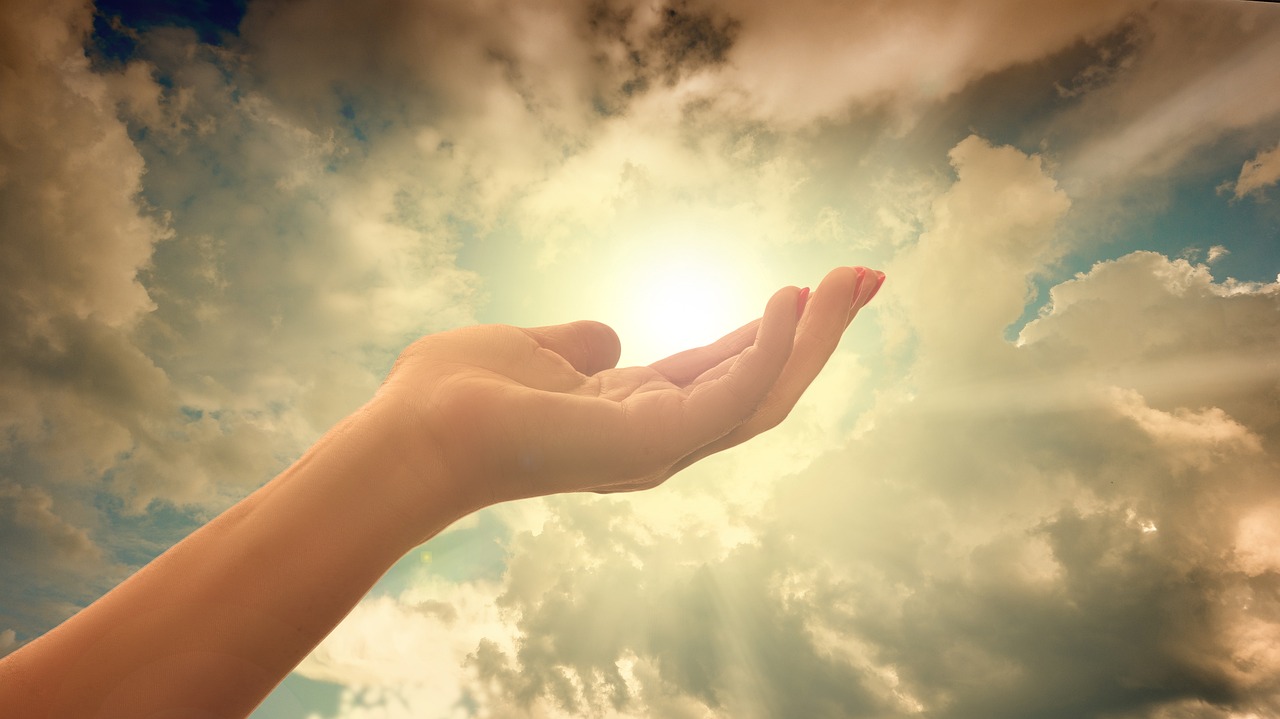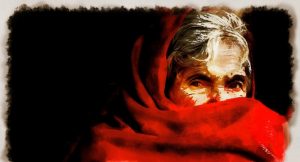Are we weak or poor?
La hawla wala quwwata illa billah (There is no might nor power except with Allah.)
Master Nursi says that the blessed phrase “Lâ havla wa lâ quwwata illâ billâhi’l-Aliyyi’l-Azîm”, which we recite in our prayers, is a sentence like a medicine that refreshes people, to present to our Lord how weak and poor we are and to declare that there is no effect outside of His might and power.
Because human beings are inherently poor because they need everything in the universe. He needs eyes to see, ears to hear, hands to hold, feet to walk, air, water, and The sun to sustain his life, in short, he needs everything. No matter how materially rich he may be in the world, the human being, whose “needs are scattered all over the universe and whose desires extend to eternity”, is of course very poor.
For this reason, man feels the need to seek refuge in an infinite Mercy. Likewise, the fact that man is not able to do anything that he needs, that he requires, and that is necessary for him to continue his life, also shows the powerlessness of man. This infinite helplessness necessitates the need to rely on and seek refuge in an infinite Power.
Master Nursi draws attention to this truth in the following sentences: “Although there is an infinite weakness and an infinite poverty in man’s nature, he has an infinite need and an infinite demand. From this weakness and poverty, man needs asylum to a Qadîr (The Capable, The Powerful) and a Rahîm (The Bestower of Mercy).”
In another of his works, Master Nursi explains how man has unlimited ambitions and requires asylum to the sanctuary of an Absolute Powerful: “The human being needs and related to most of the universe. His needs are scattered all over the universe; his desires extend to eternity. As much as he wants a flower, he also wants a whole spring.
As he desires a garden, he desires the eternal Paradise. As he longs to see a friend, he also longs to see God. He is perfect and most beautiful in His essence, attributes, and actions. Just as he needs to open the door of another range to visit a loved one who is in another range, he needs to visit ninety-nine percent of his friends who have passed into eternity and to visit his ninety-nine percent of friends who have passed into eternity and to get rid of eternal separation, he needs to asylum to the lodge of an Absolute Powerful who will close the door of the whole world and open the door of the hereafter, which is an apocalypse, and who will remove the world and establish and put the hereafter in its place.”
In Risale-i Nur, Master Nursi mentions many sentences of prayer in the form of supplication and supplication in which he presents his situation to Allah Almighty. As a servant, he presents his needs and requirements to Allah Almighty, begs Him, and asks for His help. He reveals his weakness and poverty. He ends these sentences of supplication and supplication with the blessed words “La hawla wala quwwata illa billah”. It guides us on how we can express our weakness and poverty as a servant to our Lord.
It reminds us how we can express how helpless we are and how we should take refuge in our Lord.
Master Nursi states that the mention of the words “”La hawla wala quwwata” along with these supplications and prayers of supplication and supplication means that we are expressing our asylum to Allah Almighty and our trust in Him.
He explains that the word “La hawla” means that we realize that we cannot overcome our enemies with our own strength and that we take refuge in the infinite power of Allah Almighty, that is, we take refuge in Him.
Namely: The word “la hawla” (the real power belongs only to Allah) means “to appeal to the power of God by abandoning one’s own power as a point of reliance against one’s enemy”.
On the other hand, he explains that the word “La quwwata” means that we believe that only Allah Almighty can fulfill our unlimited wishes, desires, and needs and that we believe and trust in our hearts that He has an infinite power to fulfill all our needs, that is, we rely on Him. That is to say; “With the word “la kuvvete” (the real power belongs only to Allah), the absolute means (a definite means) of fulfilling one’s wishes and desires and needs is trusting in the Almighty with tawakkul (trusting in Allah and accepting Him as a surrogate).”
Let us now try to contemplate a few of Master Nursi’s sentences of supplication and supplication, the meaning of “an asylum to Allah Almighty” in the word “la hawla” and the meaning of “trust in Allah Almighty” in the word “la quwwata”.
Let us first consider one of the prayers of supplication and supplication in which infinite poverty is expressed. The prayer is as follows:
“Ya Ilahi wa ya Seyyidi wa ya Maliki!” (O my God and my Master and my Owner)
“My poverty is infinite. Although my needs and needs are incalculably many, the hand of my power and my will is too short to reach the least of those needs. Only You have the power and strength.
“O my Lord Most Merciful, O my Creator Most Merciful, Ya Hasîb (The Reckoner, The Sufficient), Ya Wakîl (The Trustee, The Disposer of Affairs), Ya Qâfi! (The Sufficient) “
We can divide this supplication into two parts, which contain the meaning of “an asylum to Allah Almighty” and “trust in Allah Almighty”.
The first part looks at the “asylum to the Almighty” which contains the meaning of the word “La havle”. If we pay attention, in the first part of the prayer, we confess that we have unlimited needs, but that we do not have the power to meet these needs, that we take refuge in the power of our Lord by expressing our helplessness and weakness, that we ask for His help and ask for help from His grace. In other words, we are “an asylum to the power of God”.
The second part looks at the position of “trusting in the power of God”, which contains the meaning of the word “La quwwata”. How does it look?
When we mention the first part of the prayer, the following questions will come to mind.
Will the One whom I beg to fulfill my unlimited needs have mercy on me?
Does He have the power to fulfill my requests and demands?
Is the One I am begging for abundant and all-sufficient?
Will the One to whom I make supplication answer me?
Can He meet all my needs?
In the second part of the prayer, we answer “Yes” to all such questions. Because I trust and rely on the One whom I beg to fulfill my unlimited needs to be “Merciful Lord ” and “Al- Kaviyy ( The All-Strong) “. Because I rely on Him to be the “Most Generous Creator” to whom I offer my request because I rely on Him to be “Al-Wakil (The Trustee, The Disposer of Affairs) ” who answers me.
Because I trust and rely on “Al-Kafi” who meets all the needs of His creatures and “Al-Hasîb” who sees and watches over all their needs. Thus, in the second part of our prayer’, we declare that we “rely on the Almighty” by mentioning the beautiful names and attributes of Allah Almighty related to the subject we are making a supplication for.
May Allah accept our supplications and supplications that we make by combining them with contemplation. May Allah include us in the group of servants whose share is high.
Inspired by the Risale-i Nur corpus of Master Said Nursi.




